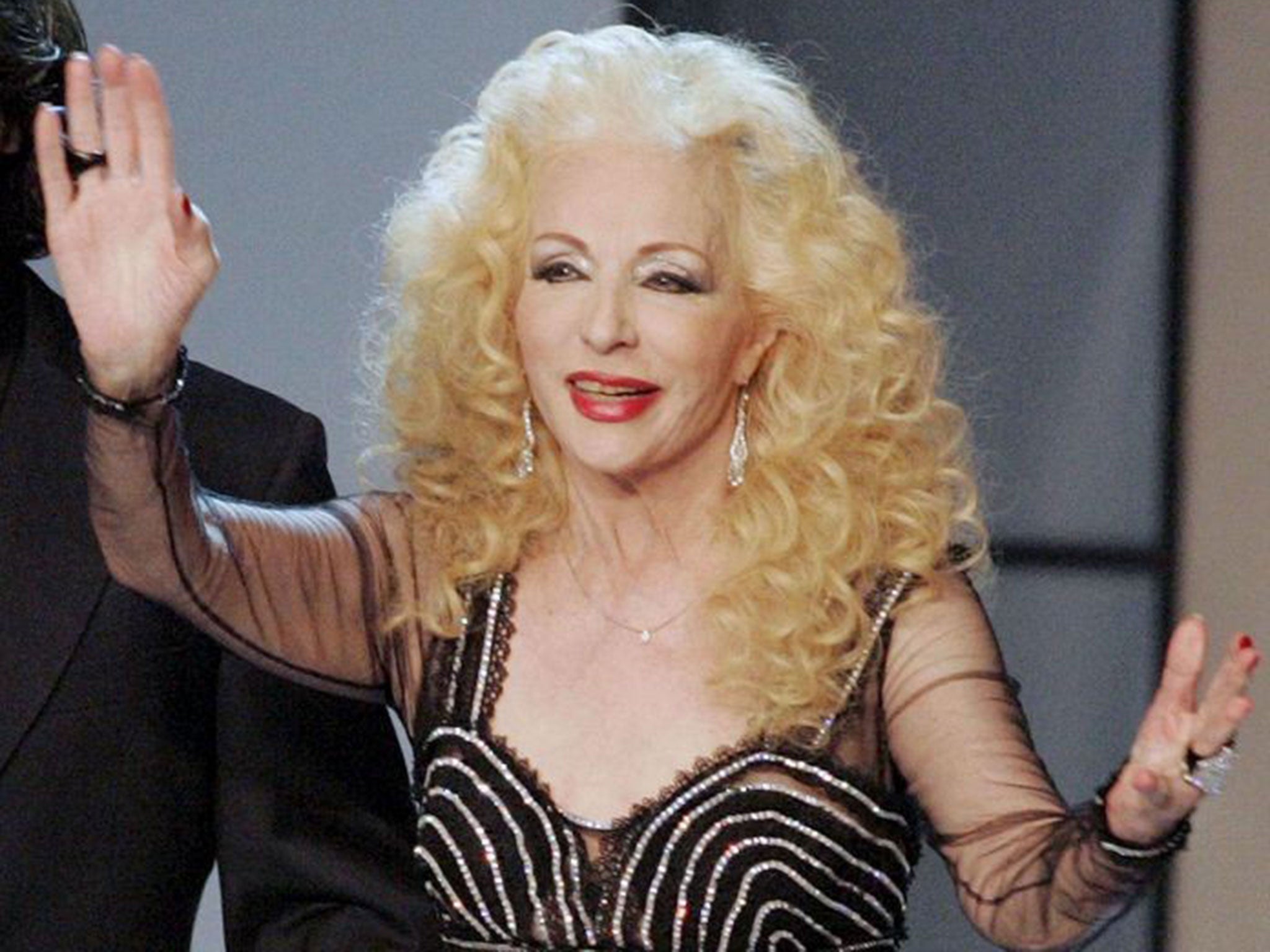Sabah: Singer and actress who recorded more than 3,000 songs but whose lifestyle scandalised the Middle East
She was married nine times and when she was in her seventies she dated a 25-year-old Mr Lebanon

Your support helps us to tell the story
From reproductive rights to climate change to Big Tech, The Independent is on the ground when the story is developing. Whether it's investigating the financials of Elon Musk's pro-Trump PAC or producing our latest documentary, 'The A Word', which shines a light on the American women fighting for reproductive rights, we know how important it is to parse out the facts from the messaging.
At such a critical moment in US history, we need reporters on the ground. Your donation allows us to keep sending journalists to speak to both sides of the story.
The Independent is trusted by Americans across the entire political spectrum. And unlike many other quality news outlets, we choose not to lock Americans out of our reporting and analysis with paywalls. We believe quality journalism should be available to everyone, paid for by those who can afford it.
Your support makes all the difference.Beloved for her powerful voice but seen by many as brazen in the conservative Arab world for her multiple marriages, the Lebanese singer, actress and entertainer Sabah never seemed far from the limelight during her six-decade career.
And even while playfully mocked in her later years for clinging to youth through plastic surgery, flings with younger men and garish outfits, Sabah remained cherished for her love of life and positive outlook even into old age. “I’m proud that I’m a village girl but I had a lot of ambition,” she said in 2008.
Sabah, whose real name was Jeanette Feghali, was a peroxide-blonde with a throaty laugh and playful smile. She took her stage name from the Arabic word for “morning”. Her many other nicknames included shahroura, Arabic for “singing bird”, and the Sabbouha, a play on “Sabah” that millions of fans used for her across the Middle East. Others simply called her al-Ustura, or “The Legend”.
Born to a Christian family in the village of Bdadoun near Beirut in 1927, Sabah released her first record when she was 13 and came to prominence in the 1940s as a singer and actress in the Egyptian films that dominated the Arab world. She acted in at least 25 plays, four radio musicals, 85 films and sang 3,000 songs, according to Charbel Alasmar, a Lebanese-Canadian composer also known as Charbel Moreno, who documented Sabah’s career.
Among her most popular films were Soft Hands (1964), Ataba Square (1959) and The Second Man (1960), in which she played a cabaret singer who avenges her brother’s death at the hands of a smuggling ring. “She broke so many taboos. I don’t know if she was even aware of it,” said Chady Maalouf, head of programming at Voice of Lebanon radio. “She was the example of a star, she was totally complete: in her appearance, behaviour and voice. She shocked people all the time.”
She worked with a string of legendary Egyptian composers, including the late Mohammed Abdul-Wahhab, acquiring the grace and breadth demanded to master classical Arabic music. She was a queen of the Lebanese folkloric form called the mawal, nostalgic of a time before Lebanon’s crippling 15-year civil war that ended in 1990.
Some of her most famous songs include “Zay el-Assal”, or “Your Love is Like Honey on my Heart”, and Akhadou el-Reeh, “They Took the Wind”. Her last well-regarded song, a duet released in 2006, showed she could out-sing her younger contemporaries. She performed at Olympia in Paris, the Carnegie Hall in New York, the Piccadilly Theatre in London and the Sydney Opera House.
Sabah often set tongues wagging with her flamboyant life and her gregarious confessions to entertainment reporters. She frequently married and divorced – at least nine times, most most notably to the Egyptian actor Roshdi Abaza and the Lebanese author and director Wassim Tabbara.
Her relationships ran from a month to the 17 years she was married to her final husband, to a dancer and artist, Fadi Lubnan. He was an indeterminate number of years younger than her. One of her husbands, the parliamentarian Joe Hamoud, divorced her in the 1970s after she scandalised Beirut society by appearing in tiny shorts for a theatre role, and in her seventies, she dated a 25-year-old Mr Lebanon, Omar Mehyo. Well into her eighties she appeared with thick, tumbling blonde locks, sparkly dresses, red lipstick and heavy black eyeliner. She broke a Lebanese taboo on plastic surgery – now almost a national pastime – constantly updating her features with facelifts.
In her last months, amid rumours that she had died, Sabah was amused to discover that journalists were in a frenzy to ascertain the state of her health, according to Chady Maalouf: “She said, ‘Even in my death, I’m making people busy’.”
Jeanette Gergis Al-Feghali (Sabah), singer: born Bdadoun, Lebanon 10 November 1927: married nine times (one daughter, one son); died Beirut 10 November 2014.
Join our commenting forum
Join thought-provoking conversations, follow other Independent readers and see their replies
Comments